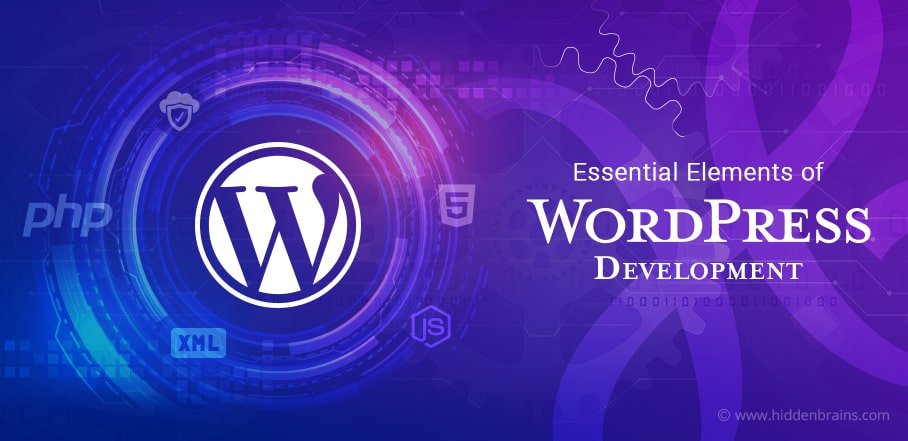This post lists the finest eCommerce CMS for building your online company in 2023. It covers money processing and customer administration to help you pick the ideal platform for your online business and enhance sales.
Table of Contents
- What is CMS?
- Main features of CMS
- Shopify
- Woocommerce
- Magento
- BigCommerce
- OpenCart
- Wix
- Squarespace
- Drupal
- How to choose a CMS for your online business?
- Some last words
What is CMS or eCommerce CMS?
CMS is an abbreviation for Content Management System. It is essentially a form of software that helps individuals and businesses create and administer digital content, such as websites, blogs, and online stores, even if they lack extensive technical expertise.
Without having to write code, you can construct web pages and contribute various types of content, such as text, images, and videos, using a content management system (CMS). Additionally, you can readily modify and organise your website’s content, as well as make alterations as necessary. Typically, CMSs include templates and modules that enable you to customise the appearance and functionality of your website or other digital content, allowing you to create something that appears fantastic and functions as you desire.
WordPress, Drupal, and Joomla are three of the most popular content management systems, but there are many others to choose from.
Main Features of CMS
A Content Management System (CMS) possesses a variety of features that make it an effective instrument for administering digital content. Here are some of the most prominent features of a CMS:
- Content creation and editing: A CMS enables the creation and modification of various categories of content, including web pages, blog posts, and multimedia files.
- Content organisation: With a content management system, you can simply organise your content into categories, keywords, and other structures, allowing visitors to swiftly locate the information they seek.
- User management: A CMS enables you to create and manage user accounts, control access to content, and monitor user activity.
- Customization: Content management systems include a variety of customizable templates and themes that allow you to alter the appearance and layout of your website or content.
- Plugins and extensions: Most content management systems include a variety of plugins and extensions that can extend the functionality of your website or content.
- SEO: Many content management systems (CMSs) include SEO features, such as meta tags and keyword optimisation, to help you optimise your content for search engines.
Overall, CMSs offer a convenient and user-friendly way to manage digital content, regardless of your technical expertise.
Top e-commerce CMS for Online Store
When constructing an online store, selecting the appropriate eCommerce CMS can be crucial. Here are some of the best available eCommerce CMS options:
- Shopify, one of the most prominent eCommerce content management systems available, provides a platform that is simple to use and modify. It includes payment and shipping options, marketing tools, and third-party integrations, among other features.
- WooCommerce: Built atop WordPress, WooCommerce is a popular eCommerce CMS that provides a robust and adaptable platform for constructing online stores. It is open-source and customizable, with a vast selection of extensions and modules.
- Magento is a feature-rich eCommerce content management system (CMS) designed for larger online retailers. It provides a comprehensive infrastructure for administering complex product catalogues, customer data, and sales data. It is highly customizable and includes a variety of built-in features and integrations with third-party applications.
- BigCommerce is a cloud-based eCommerce CMS with a variety of features and customization options, such as SEO optimisation, payment and transportation integrations, and product administration tools.
- OpenCart is an open-source eCommerce CMS that provides an intuitive and lightweight platform for constructing online storefronts. It includes a variety of features and add-ons, such as payment and transportation integrations, marketing tools, reporting and analytics, and more.
- Wix is an eCommerce-capable website builder that offers a variety of templates and drag-and-drop tools that make it simple to create an online store. It features customizable product pages, payment options, and shipping and tax administration.
- Squarespace is a website builder with eCommerce functionality that offers a variety of templates and design tools for creating a visually appealing online store. It offers customizable product pages, multiple payment options, and order management tools.
- Drupal is a popular open-source CMS among developers that offers a variety of eCommerce modules and extensions for building an online store. It features product administration, payment and shipping integrations, and product pages that can be customised.
Each of these eCommerce CMS options has its own advantages and disadvantages, so it’s crucial to thoroughly assess your business’s requirements and select the most suitable platform.
How to choose a CMS for your online business?
Selecting the optimal CMS for your online business can be a crucial choice. Consider the following factors when making your selection:
- Create a list of the features your online business requires, including payment processing, order administration, and marketing tools. Consider whether you require a fully hosted platform or a completely customizable open-source solution when searching for a content management system (CMS).
- Consider the CMS’s ease of use, both for establishing your online store and for administering it on an ongoing basis. Look for a content management system with an intuitive user interface and drag-and-drop customization tools.
- Customization: Consider how much design and customization flexibility you require. Look for a CMS that provides a variety of templates and design tools that make it simple to create a site that reflects your brand and looks fantastic.
- Consider how well the CMS will scale as your organisation expands. Consider a CMS that supports a growing number of products and consumers, as well as multi-site administration and third-party integrations.
- Consider the degree of support you will require during the installation process and on an ongoing basis. Consider a CMS that provides live chat, email, and phone support for customers.
- Consider your budget and search for a content management system that falls within it. Consider that some CMSs may charge extra for features such as payment processing or premium themes.
By thoroughly evaluating your requirements and considering the aforementioned factors, you can select a CMS that is the best match for your online business and contribute to its success.
Some last words from The Hawk Tech Team
Choosing the right eCommerce CMS can make all the difference in growing your online business. We hope our guide has helped you find the platform that’s best suited to your needs.
If you have any further questions or need assistance with setting up your online store, please don’t hesitate to contact us at thehawktechofficial@gmail.com, Our team is always here to help you succeed.









